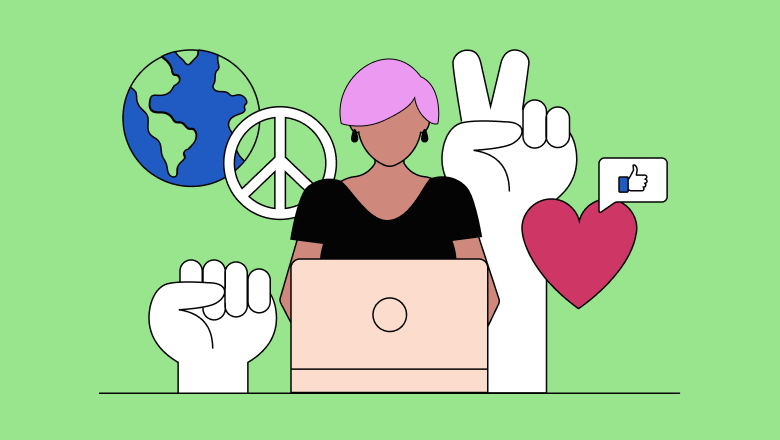Is influencer activism the new brand activism?

🌈 Abstract
The article discusses the growing trend of influencer activism, where influencers use their social media platforms to campaign and advocate for political, social, or environmental causes. It explores the consumer expectations around influencers taking a stand on social issues, the differences between brand activism and influencer activism, and the implications for brands when partnering with influencer activists.
🙋 Q&A
[01] Influencer Activism
1. What is influencer activism?
- Influencer activism describes influencers and creators using social media as a tool to campaign and advocate for political, social or environmental causes.
- It can include collaborations with nonprofits and usually serves to raise awareness and mobilize action, such as asking followers to sign petitions, make donations, participate in protests, or make lifestyle changes.
2. What are the potential issues with influencer activism?
- Influencer activism can be perceived as performative or "slacktivism" when it prioritizes appearances and personal branding over genuine commitment.
- Superficial engagement without long-term follow-through, like only posting hashtags or talking about an issue because it's trending, can dilute the efforts of true activists and shift focus away from more impactful messages.
- Influencer activism can also go astray when influencers support causes with self-promotion in mind or speak out on issues they are ill-informed or under-informed about.
3. What led to the demand for influencer activism?
- A few years ago, brand activism was the norm, with 70% of consumers believing it was important for brands to have a public stance on social and political issues.
- However, the surge of brands putting forth "activist" content largely backfired, with many being accused of "woke-washing" and performative activism.
- As a result, consumers seem to believe the social media activism baton should be passed to influencers, who have become role models and moral guideposts through their parasocial relationships and growing cultural relevance.
[02] Implications for Brands
1. How do consumer expectations affect brands when partnering with influencers?
- According to the Sprout Pulse Survey, 42% of consumers will unfollow brands if they work with influencers that don't align with the consumer's values.
- With stakes that high, brands need to be extremely careful when selecting influencers to ensure they meet their audience's expectations and protect their reputation.
2. What should brands consider when partnering with influencer activists?
- Brands need to do more thorough vetting and background research to understand what causes influencers have spoken up about in the past, looking beyond just follower count or engagement rate.
- Finding influencers whose advocacy aligns with the brand's values can endear the brand to its community and enhance its reputation.
- Brands should also establish clear brand safety guidelines to determine which issues they are willing to align with and which are off-limits.
3. How can brands effectively partner with influencer activists?
- Partnering with influencers who resonate with the brand's target market and demonstrate a year-round commitment to the issues that matter most to the audience can lead to sustainable brand advocacy and make a real difference.
- Examples like Reformation's partnership with Monica Lewinsky and Topicals' collaborations with influencers who celebrate diverse skin tones show how brands can authentically align with influencer activists.